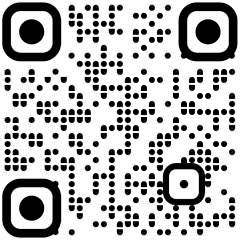The government-backed Senior Citizen Savings Scheme (SCSS) is available for those over the age of 60, or 55 for those who have retired on superannuation or under a voluntary or special voluntary plan, or 50 for retired military personnel (excluding civil defence staff).
Senior citizen savings scheme offers 8.2% interest rate: Can you open more than one SCSS account?
Was interest rate hiked for quarter January- March 2024?
The government fixes the interest rate on SCSS every quarter. The government has not hiked the interest rate on SCSS for this quarter. The account holders can earn interest at the rate of 8.2% on their deposits. The interest is payable every quarter and is fully taxable. SCSS details
The account shall be opened with a minimum deposit of Rs. 1,000 or any sum in multiples of Rs. 1,000 not exceeding Rs. 30,00,000. The tenure of the deposit is 5 years and can be further extended by 3 years.
The government issued a notification on November 7, 2023, making several important changes in the popular Senior Citizen’s Savings Scheme (SCSS). As per the notification:
1. More time to invest retirement benefits: A retired individual of more than 55 years of age but below 60 years of age will now have three months’ time to invest retirement benefits in the SCSS. Earlier, a retired individual had to invest within 1 month of the receipt of retirement benefits.
2. Investment by spouse of government employee: The government has significantly relaxed the criteria for spouses of government employees who died on the job. The new laws allow a government employee’s spouse to invest the financial aid amount in the plan. This will be permitted if the deceased government employee was above the age of 50 and died while on the job. This benefit is available to all central and state government employees who are qualified for retirement or death benefits.
3. Scope of retirement benefits defined: The government has also specified the scope or meaning of the retirement benefits. As per the notification, retirement benefit means any payment received by the individual due to retirement or superannuation. This includes provident fund dues, retirement or superannuation or death gratuity, commuted value of pension, leave encashment, savings element of group savings linked insurance scheme payable by the employer on retirement.
4. Deduction on premature withdrawal: The government has imposed new restrictions on early withdrawals from the plan. If the account is closed before the one-year investment period expires, one percent of the deposit would be removed, according to the new regulations. Previously, if the account was closed before the one-year period expired, the interest paid on the deposit was to be recovered from the deposit and the whole balance was to be remitted to the account holder.
5. No limit on the extension of SCSS: The government changed the regulations for the SCSS scheme’s expansion. The account holder may continue to prolong the account for a n number of blocks of three years each. Furthermore, for each extension, an application must be made. Previously, the extension could only be granted once.
6. Interest on extension of scheme deposit: The government has also revised the interest that an individual will be entitled to if they extend the scheme after maturity of five years. As per the new rule, in case the SCSS account gets extended on maturity, the deposit will earn an interest rate applicable to the scheme on the date of maturity or on the date of extended maturity.
As per the old rules, the deposit in an extended account would have earned interest at the rate applicable to the scheme on the date of maturity. As the account could not have been extended more than once, therefore, the interest to be applied on the second extension was not specified. This change is merely a clarificatory rule as multiple extensions have now been allowed.
7. Maximum deposit amount: The maximum deposit amount in the scheme shall not exceed the allowed deposit limit. This includes the deposit made at the time of opening of the account shall be paid on or after the expiry of five years or after the expiry of each block period of three years. As per the notification, “The deposit made at the time of opening of account shall be paid on or after the expiry of five years or after the expiry of each block period of three years where the account was extended under paragraph 8 from the date of opening of account. Provided that after the closure of the existing account or accounts, new accounts or accounts may be opened again as required by the depositor subject to the maximum deposit limit.”
As the account could not have been extended more than once, therefore, the deposit made on the second extension was not specified. This change is merely a clarificatory rule as multiple extensions in the scheme have now been allowed.










